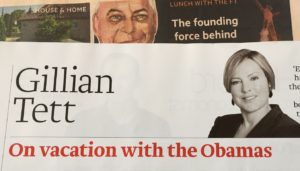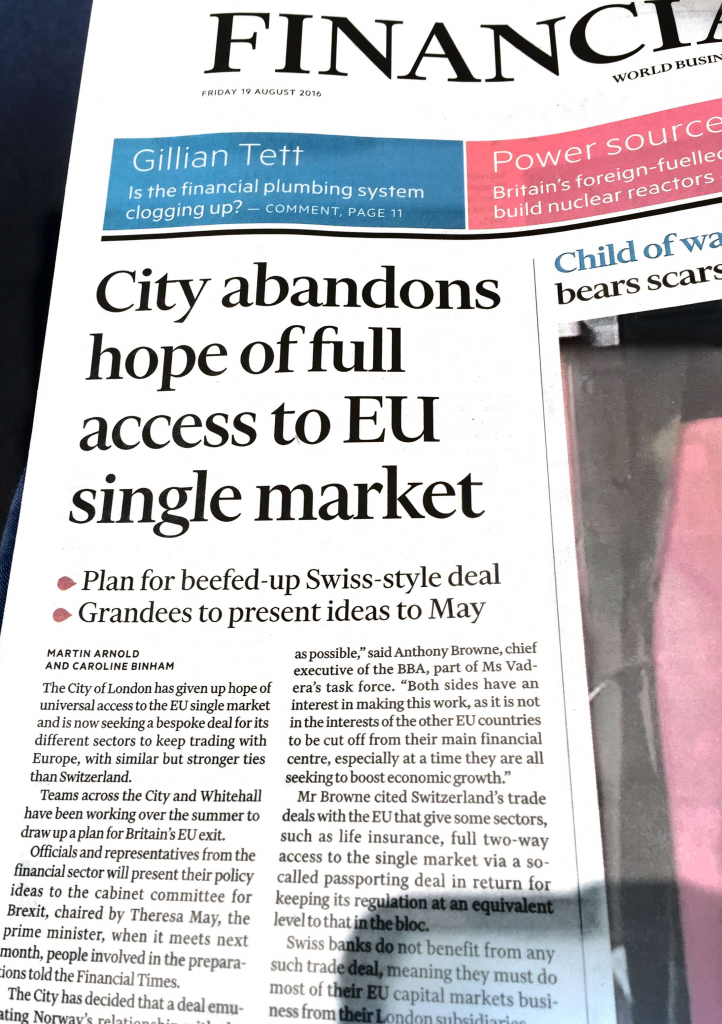Imagine this scenario: an International authority decides that a transnational company has deprived a sovereign state of anything up to €19B in back taxes plus interest over 25 years. The company, naturally enough, screams blue murder and declares its intention to appeal the judgment. The ruling, says its CEO, is “total political crap”. So what does the sovereign state decide to do? Why, it’s going to appeal the ruling and stand shoulder-to-shoulder with the transnational company. If you wanted a case study in how power has shifted from states to corporations, then this, surely is it.
The country in question is the Republic of Ireland, and the company is Apple. The ruling that so enrages both comes from the European Commission, which has decided that that Ireland must recoup the sum of up to €13 billion in unpaid taxes (plus interest, which could bring it closer to €19B) from Apple because the deal the country struck with the company 25 years ago amounts to illegal state aid to a corporation. The commission said the deal allowed Apple to pay a maximum tax rate of just 1%. In 2014, the firm paid tax at just 0.005%. The usual rate of corporation tax in Ireland is 12.5%.
Now Ireland is a small country which, despite the hype to the contrary, is not in great economic shape. There has been a much-vaunted ‘recovery’ from the devastation caused by the collapse of its major banks and the bursting on an insane property bubble, but that recovery is largely an illusion, and confined mainly to Dublin, the capital city. Last year, the Fine Gael government called a general election and campaigned under the slogan “Keep the Recovery Going”. Outside of Dublin the electorate replied “er, what recovery?”, with the result that neither of the two main political parties was able to form a government, and now an uneasy coalition rules with the assistance of five independent members of Parliament.
Ireland’s health service, for example, is in very poor shape. Likewise its social services. So €19B is a very significant sum for a country in such conditions. It would, for example, be enough to run the health service for an whole year. You’d have thought, therefore, that the European Commission’s ruling would be seen as manna from heaven. But that is not how the country’s benighted government views it.
To understand why, you need to know a bit of modern Irish history. The Republic gained its independence from British rule in 1923, and for the first 50 years of its independence it was a poor, backward, inward-looking, priest-ridden country dominated by Eamon de Valera and his Fianna Fail party. Its main industry was agriculture and its biggest export was its young people, who left in their hundreds of thousands to seek better lives in the UK, the US and Australia. At one stage in the 1930s, ‘Dev’ waged an “economic war” with Britain under slogans like “Burn everything British except their coal”. But eventually, in 1959, Dev stood down from the premiership and became the (non-executive) President, and was replaced by his son-in-law, Sean Lemass, a technocrat who realised that the country had to become outward-looking in order to survive. Along with a visionary senior civil servant, Dr T.K. ‘Ken’ Whitaker, Lemass concluded that the country’s salvation — given that it had no natural resources, lay in attracting inward investment from foreign — mainly American — companies. The vehicle Lemass charged with making this happen was the country’s only truly dynamic government agency — the Industrial Development Authority — which had the mission of attracting overseas investment to Ireland.
In this, the IDA was spectacularly successful. Foreign corporations came to Ireland in droves, and in the process began the transformation of the country, creating jobs and bringing wealth on an unprecedented scale. The companies were lured with all kinds of incentives, including planning and infrastructure provision and exceedingly generous tax holidays. The resulting turnaround was then given a spectacular boost in 1973, when Ireland joined the European Community (as it then was), which led to a massive infusion of development funds from Brussels, much of which were sensibly spent on infrastructure and reviving the moribund rural economy.
The deal which brought Apple to Ireland conformed exactly to the IDA template. The company set up a manufacturing plant in Cork, Ireland’s second city, and eventually located its European HQ in Ireland. The taxation deal which so exercises the European Commission dates from this period. And it explains the strange reluctance of the current government to refuse the windfall that the Commission has now bestowed upon it.
As the Irish Times columnist, Fintan O’Toole, puts it,
Since the Whitaker/Lemass revolution, the unspoken rule of all Irish policy has been – don’t do anything that in any way threatens to upset the huge, mostly US-based corporations whose investments shape both the economy and a remarkably enduring political consensus. This is not mere cravenness. If Ireland has sold its soul to the corporations, it has arguably got a very good price for it – not just jobs and tax revenues but a relatively peaceful transition from conservative nationalism to global modernity. It is not surprising that the entire Establishment is of one mind on the Apple ruling – there must not be the width of an ultra-thin sheet of silicon between Apple and Ireland on this. The tricolour has an Apple logo in the centre and we will all rally behind it to ensure that the tax bite out of the apple is as tiny as the corporation wants it to be.
O’Toole, who is Ireland’s most perceptive and trenchant columnist, is strongly of the opinion that the government should take the windfall and put it to imaginative use. It could be used, for example, to
- Build 50 new hospitals
- Build an extension to Dublin’s Luas rapid transit system that is needed to ease the traffic congestion that is choking the capital’s social and economic life
- Boost the supply of sorely-needed social housing
- Fast-track the construction of a metro system in the capital
- Abolish the country’s crippling property taxes
- Provide a break from the additional Universal Service Charge levied to pay for the bail-out of the country’s zombie banks
- And encourage the formation of a sovereign wealth fund.
The decision to ignore these necessary measures and appeal the European Commission’s ruling therefore represents a clear strategic decision by the government. Or, more precisely, it suggests that the country’s ruling elites are not interested in funding the measures needed to reduce inequality and improve the country’s provision of social services. This mindset believes, O’Toole argues, that
even this vast windfall might in fact be a booby prize. If we take this money from Apple, we will make the corporations angry. When the government talks of ‘reputational damage’ it ostensibly means damage to Ireland’s reputation from the EU ruling’s implication that the State was being used as a tax haven. But the reputational damage it actually fears is quite the opposite – damage to our well-earned reputation among corporations for facilitating tax avoidance on a global scale.
He’s right. Ireland has become the world centre for corporate tax avoidance. The decision to appeal the ruling suggests that neoliberal ideology rules OK in the Emerald Isle. And it shows that the Irish state has actually given up on the idea of sovereignty. It ignores the fact that
amid a longterm crisis in global capitalism, massive corporate tax avoidance is becoming politically unsustainable. And a vision of Ireland that places the facilitation of that tax avoidance at its heart is therefore not sustainable either.
In that sense, the Irish government has deliberately chosen to put the country on the wrong side of history. Or, as Yeats might have said, my countrymen have disgraced themselves — again.



